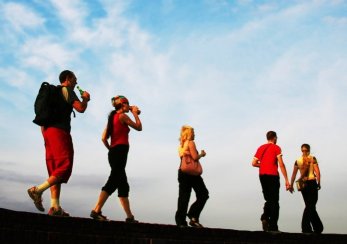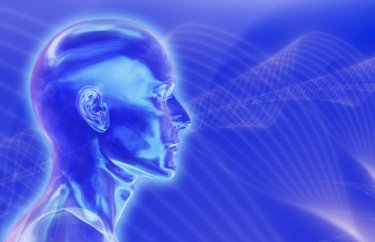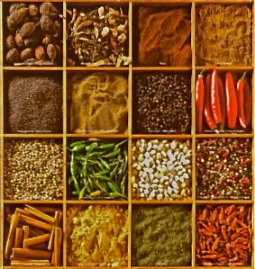 |
Wednesday, 25 April 2012
Positive Feelings May Help Protect Cardiovascular Health
Mood:
 happy
Topic: Positive Thinking happy
Topic: Positive Thinking

Over the last few decades numerous studies have shown negative states, such as depression, anger, anxiety, and hostility, to be detrimental to cardiovascular health. Less is known about how positive psychological characteristics are related to heart health. In the first and largest systematic review on this topic to date, Harvard School of Public Health (HSPH) researchers found that positive psychological well-being appears to reduce the risk of heart attacks, strokes and other cardiovascular events. The study was published online April 17, 2012 in Psychological Bulletin. The American Heart Association reports more than 2,200 Americans die of cardiovascular disease (CVD) each day, an average of one death every 39 seconds. Stroke accounts for about one of every 18 U.S. deaths. Full Story from sciencedaily.com
Posted by Neil Bartlett DHyp M.A.E.P.H
at 01:01 MEST
Updated: Wednesday, 25 April 2012 01:40 MEST
Tuesday, 24 April 2012
Walking could be a useful tool in treating depression
Mood:
 chatty
Topic: Alternative Health chatty
Topic: Alternative Health

Something as simple as going for a brisk stroll could play an important role in fighting depression, according to researchers in Scotland. Vigorous exercise has already been shown to alleviate symptoms of depression, but the effect of less strenuous activities was unclear. A study in the journal Mental Health and Physical Activity showed walking had a "large effect" on depression. One in 10 people may have depression at some point in their lives. The condition can be treated with drugs, but exercise is commonly prescribed by doctors for mild symptoms. Full Story from BBC
Posted by Neil Bartlett DHyp M.A.E.P.H
at 01:01 MEST
Updated: Tuesday, 24 April 2012 01:43 MEST
Monday, 23 April 2012
Henry, an iPod, and the Alchemy of Music
Mood:
 bright
Topic: Inspirational bright
Topic: Inspirational
Alive Inside, a documentary premiering next week in New York, investigates a social worker's attempt to engage seniors with dementia and Alzheimer's at a nursing home. When he discovers how well it works, he brings in neurologist Oliver Sacks, and the two embark on an experiment to see music's impact on this population. The video above has become a viral hit as more people discover it, and it's no surprise -- people's connection with music, particularly music from their younger years, elicits strong emotions, and some researchers have even suggested it as a necessity for people. Ray Mueller, a member of the Shumei Arts Council of America’s Advisory Board, told Psychology Suite 101, “Research has located specific areas of mental activity linked to emotional responses to music. It seems music is a human need and the brain is able to act as a function to satisfy that need.” For older populations, music has been associated with everything from helping uncover memories in patients with Alzheimer's to reducing falls during exercise. The video is also affiliated with Music & Memory, an organization dedicated to helping seniors connect to music, including collecting used iPods for donation. Article Source - dailygood.org
Posted by Neil Bartlett DHyp M.A.E.P.H
at 01:01 MEST
Updated: Monday, 23 April 2012 01:09 MEST
Sunday, 22 April 2012
Mystery of Human Consciousness Illuminated
Mood:
 lyrical
Topic: Hypnosis & Psychology lyrical
Topic: Hypnosis & Psychology

Awakening from anesthesia is often associated with an initial phase of delirious struggle before the full restoration of awareness and orientation to one's surroundings. Scientists now know why this may occur: primitive consciousness emerges first. Using brain imaging techniques in healthy volunteers, a team of scientists led by Adjunct Professor Harry Scheinin, M.D. from the University of Turku, Turku, Finland in collaboration with investigators from the University of California, Irvine, USA, have now imaged the process of returning consciousness after general anesthesia. The emergence of consciousness was found to be associated with activations of deep, primitive brain structures rather than the evolutionary younger neocortex. These results may represent an important step forward in the scientific explanation of human consciousness. The study was part of the Research Programme on Neuroscience by the Academy of Finland. "We expected to see the outer bits of brain, the cerebral cortex (often thought to be the seat of higher human consciousness), would turn back on when consciousness was restored following anesthesia. Surprisingly, that is not what the images showed us. Full Story from sciencedaily.com
Posted by Neil Bartlett DHyp M.A.E.P.H
at 01:01 MEST
Updated: Sunday, 22 April 2012 02:12 MEST
Saturday, 21 April 2012
Fretting is a useful defence mechanism
Mood:
 bright
Topic: Human Nature bright
Topic: Human Nature

Anyone who's lain awake at night worrying over work or money might find it improbable - but worrying is a beneficial trait. Humans evolved worrying alongside intelligence - perhaps as a defense mechanism in a dangerous world where early humans had to fight for survival.
'While excessive worry is generally seen as a negative trait and high intelligence as a positive one, worry may cause our species to avoid dangerous situations, regardless of how remote a possibility they may be.' said Dr. Coplan of SUNY (State University of No York.'
'In essence, worry may make people 'take no chances,' and such people may have higher survival rates. Thus, like intelligence, worry may confer a benefit upon the species.' High intelligence and worry both deplete the same nutrient in the brain's white matter - suggesting they evolved at the same time. Worry might actually be a useful trait that helped our species to survive. Full Story from dailymail.co.uk
Posted by Neil Bartlett DHyp M.A.E.P.H
at 01:01 MEST
Updated: Saturday, 21 April 2012 01:44 MEST
Friday, 20 April 2012
Top 10 herbs and spices for strengthening your immune system
Mood:
 bright
Topic: Alternative Health bright
Topic: Alternative Health

Of the many systems working within the human body, the immune system is an excellent example of complex efficiency. A network of participating cells and organs, it synchronizes its responses when defending the body from infection and disease. In its element, it has the capacity to remember diseases it has encountered and produce secretions and cells that can effectively defend the body from another recurrence. Moreover, it has an advanced communication system that can trigger an immediate response to an emergency and act according to the severity of the infection. Activated immune cells start producing substances that allow it to recruit other immune cells and guide it to the site of attack while at the same time allowing it to control behavior and growth. However, when the system malfunctions by causing an inappropriate response to substances or cells that are native to the body, it causes autoimmune diseases that will require the intervention of medication that will suppress the system's response. What causes the system to malfunction, however, is still unclear. It is believed that exposure to some drugs or bacteria by people with susceptible genes cause this phenomenon. When totally compromised the body is left defenseless, thus leaving it vulnerable to disease. Helping the body's defense system The body's defense system is only as dependable as the support it gets. Some people are just blessed with a good set of genes that ensure a strong immune system. For others who are not as lucky, they must work for immunity by observing proper nutrition, sufficient rest, a healthy active lifestyle, plenty of sun and reduced stress. Recent studies have shown that getting enough of these while cutting down on unhealthy habits and avoiding processed foods restores the immune system to peak performance. Observing proper sanitation also plays a vital role in keeping the immune system working. It is recognized as the best preventive medicine and its actual practice can reduce outbreaks and diseases, translating to significant economic, environmental as well as social benefits. Antibiotics and vaccination as remedies to assist the body's defenses against disease have now been debunked by recent findings. Of late, antibiotics have been shown to attack beneficial bacteria in the stomach and suppress immune functions. Foods that naturally boost the immune system Foods that boost the body's immune system can offer a lot of healthy options for those who wish to be more conscious in what they take in. To be sustained, the immune system heavily depends on the stomach for support. Malnourished individuals are more susceptible to disease as opposed to those who observe a healthy nutritious diet. Below are some of these examples: 1. Echinacea - Echinacea is a popular herb that has been identified to boost immunity. Combined with goldenseal, another herb, or enjoyed alone as tea, this member of the daisy family has been found to prevent and treat upper respiratory tract infections as well as the common cold. 2. Ginseng - This herb has many varieties. The most commonly studied variety is Panax ginseng, also known as Korean ginseng. Its main active component, ginsenosides, has been proven to have anti-inflammatory and anti-cancer properties. Clinical research studies have demonstrated that it may improve immune and psychological functions as well as conditions related to diabetes. 3. Garlic - This spice has had a long history of medicinal value. In a recent study conducted by Dr. Ellen Tattelman, an assistant professor at the Albert Einstein College of Medicine of Yeshiva University, New York, it was reconfirmed that garlic indeed has cardiovascular, anti-microbial and antineoplastic properties. It's also a perfect spice to use when doing sauteed dishes. 4. Bell peppers- This pepper variety does not contain capsaicin, unlike its other feisty cousins. On the contrary, it is sweet and crunchy and contains the carotenoid lycopene which lowers the risk of cancer; beta-carotene which is converted to vitamin A; and Zeaxanthin, known to prevent macular degeneration and cataracts. 5. Ginger - This herb has been shown to reduce inflammation, cardiovascular conditions, blood clots and cholesterol. In a study, researchers found that animal subjects given ginger extracts had a significant reduction in cholesterol and blood clotting qualities. Moreover, it has been observed to inhibit the behavior of genes connected with inflammation. 6. Turmeric- This spice contains curcumin, which has notable antioxidant properties. It also has antibacterial, anti-inflammatory and stomach soothing benefits. It reduces inflammation by stimulating the adrenal glands to increase the hormone that lessens inflammation. Animal studies on this herb have revealed that turmeric protects the liver from the adverse effects of alcohol and certain toxins. Turmeric also helps in digestive problems by stimulating bile flow. 7. Gingko Biloba- Gingko biloba's leaves contain antioxidant compounds called bilobalides and ginkgolides that protect the body from damage caused by free radicals. Moreover, it has also been found to protect against radiation. In a study using animal subjects, ginkgo was demonstrated to have protected the test subjects against radiation poisoning. The latest research also suggests that extracts of this herb can neutralize oxidizing agents and free radicals caused in the cells due to radiation, thus preventing cell death. In fact, NaturalNews recently reported that ginkgo extracts reduce brain damage by up to 50 percent. 8. Ganoderma- This is a bitter mushroom also known as reishi. It has long been a popular herb in Chinese medicine attributed to assisting in longevity and health. Further studies on this oriental herb reveal that it strengthens immunity and combats cancer. Moreover, it has antioxidant properties and provides relief from urinary tract infections. 9. Astralagus - Also from China, this herb stimulates the immune system and aids in digestion and adrenal gland functions. It is also a diuretic. The effectiveness of this herb is due to polysaccharides, saponins and flavonoids. It has also been taken to combat the common cold and flu. Its digestive health benefits demonstrate the lowering of stomach acidity, resulting to an increase in the body's metabolic rates and the promotion of waste elimination. 10. Cat's claw - This herb from Peru is commonly used for stomach problems. Recently, however, it is becoming known as an exceptional immune response stimulator that helps the body to fight off infections and degenerative diseases. It contains oxindole alkaloids enhancing the immune system's capacity to engulf and destroy pathogens. From a practical perspective, taking in food which boosts the immune system while enjoying it at the same time can be a cost effective way to maintain health. Coupled with a healthy lifestyle, sufficient rest and a positive outlook in life, staying healthy does not have to cost an arm and a leg. Article Source - naturalnews.com
Posted by Neil Bartlett DHyp M.A.E.P.H
at 01:01 MEST
Updated: Friday, 20 April 2012 01:16 MEST
Thursday, 19 April 2012
Ancient Aliens, Leonardo Da Vinci
Mood:
 chatty
Topic: Paranormal chatty
Topic: Paranormal
Posted by Neil Bartlett DHyp M.A.E.P.H
at 01:01 MEST
Updated: Thursday, 19 April 2012 01:05 MEST
Wednesday, 18 April 2012
The Pursuit Of Silence, In A World Full of Noise
Mood:
 chatty
Topic: Meditation chatty
Topic: Meditation

Writer George Prochnik says he's had a passion for silence as long as he can remember. "I can't sit in my house without hearing air conditioners," he tells Dave Davies. "I worry about this layer of noise that's placed on top of infrastructure noise. It's made [noise] inescapable." In his new book, In Pursuit of Silence: Listening for Meaning in a World of Noise, Prochnik leaves the noisy confines of New York City and goes on a global quest to find those who still value silence. He examines the never-ending series of sounds that pervade his thoughts on a daily basis — the traffic helicopters, the leaky iPods, the neighbors who hold loud parties — and researches the scientific effects of noise on our bodies. "There's increasing evidence that harm goes across our systems [from noise]," he says. "There's been a long association with noise and hearing loss — many times subways that haven't been maintained are already running at decibel levels that are dangerous — but there's also new studies just completed that show danger to our cardiovascular systems. Even when not awakened, blood pressure goes up and hours later, the blood pressure is still elevated." Among the noises Prochnik investigates in In Pursuit of Silence are those deliberately added to an environment to trigger key emotions and excitement. He points to one study conducted in France that showed a clear correlation between noise levels and how much people eat and drink. "What we know is that if you're loud at this point in our culture, it seems to signify that you're having a good time," he says. "This is the same phenomenon that we find in restaurants, which continue to get louder in many cities every year. ... People, it seems, will often not eat as much in a really loud environment. However, what they will do is drink more. ... So that sense of loss of control, of celebratory arousal, is something some restaurant spaces can benefit from." Prochnik says that on trips to a Quaker meeting and a monastery, he learned that absolute silence doesn't exist but that quiet spaces are essential because they "can inject us with a fertile unknown: a space in which to focus and absorb experience." "What surprised me is degree to which the monks don't associate silence with gloomy overhang," he says. "There's sense of joyfulness of turning themselves down to be conscious of greater things." Excerpt: 'In Pursuit Of Silence' by George Prochnik Chapter One Listening for the Unknown On my second night in the monastery, I heard the silence. I was inside the church: a beautiful, vast chamber of limestone blocks that resemble lumpy oatmeal and were quarried from the Iowan earth by the monks themselves in the mid-nineteenth century. The monks had finished compline, the last of the day's seven prayer services, and had filed off into the inner recesses of the monastery, where they would observe the Great Silence, speaking to no one until after mass the next morning. The last of the monks to leave had switched off the lights above the choir, and then the light over the lectern. Though the section of visitors' pews where I sat still had a little illumination, the body of the church was now in total blackness except for the faint flickering of a votive candle suspended high in the distance against the far wall. For the first quarter hour, a few worshippers remained on the benches around me. Although I sat very quietly, I found my mind busy and loud. Mostly I was reflecting on the service I had just heard, which Brother Alberic, my gracious liaison to the world of the monastery, had described as a kind of lullaby. Compline is lovely, and I was frustrated that I had not been able to find it more profound. These weren't my prayers. I yearned only for more quiet. My thoughts were noisy enough that I half expected to see them break out of my skull and begin dancing a musical number up and down the wooden benches. Soon the other worshippers departed and I was left alone. For a moment or two, my experience was of literal silence. Then, all at once, there came a ting, a tic, another tic, a tap, and a clang. The sounds came from all around the enormous dark church. They ranged from the verge of inaudibility to the violence of hammer blows; discrete chips of sound and reverberatory gonnngs. Out of nowhere, I was treated to a concert by the sound of heat in the pipes. It was a grand, slightly menacing sound that I had been oblivious to not only during the prayer service but afterward in the din of my mental dithering. And it was worth that long opening pause. The ever-changing sonic punctuation of this empty space — which had first seemed soundless — gave me a tingling sense of elevation. This is it, I told myself. Silence made everything resonate. And yet . . . Later that night when I retreated to my room, and my euphoria had subsided, I wondered why I had been affected so powerfully. Objectively, the only thing that had happened, after all, was that I had heard the metal of the pipes expanding and contracting as they heated and cooled. Why should that experience have made me feel that I was "hearing the silence"? Why did I feel at that lonely hour that I had found what I was looking for when I came to the monastery? What brought me to the New Melleray Abbey in Dubuque, Iowa, was the desire to learn from people who had made a lifelong commitment to devout silence. Trappist monks, a branch of the Cistercian order, do not make a vow of total silence, and today there are times when they engage in conversation; but silence is their mother tongue. Saint Benedict, who is credited with founding Western Christian monasticism in the sixth century, most famously at Monte Cassino, southeast of Rome, wrote a document known as the Rule that remains their guide to this day. In the Rule, monks are defined before all else as disciples, and the defining quality of the disciple is "to be silent and listen." Trappists are among the monks known as "contemplatives." Their interaction with the world outside the monastery is minimal. Much of their worship is silent. They study in silence. They work almost entirely in silence. They eat primarily in silence. They pass each other in the monastery corridors without speaking. They retire at 8 pm to separate cells and rise at 3:15 am, when they gather in silence to pray. They avoid idle talk at all times. And even after the morning mass, throughout much of their demanding day, they are discouraged from speaking. Almost everything the Trappist does takes place in silence — is pressed close by its weight, or opens out onto that expanse, depending on how you look at it. Monks have, moreover, been at the pursuit for quite some time. Alberic remarked at one point that while it is often said that prostitution is the oldest profession, he believes that monks were around before there were prostitutes. This struck me as unlikely, but it still gave me pause. There was a personal stake in this journey as well: I needed a break. I'd had a hectic, noisy winter in the city — medically harrowing, filled with bills, the hassles of insurance claims, technology fiascos, and preschool worries. Plans to visit friends in the country had fallen through several times. I'd tried to go to a Zen retreat in New England that taught the breath- and silence-based meditation practice of vipassana, only to be told at the last moment that although I could come and sit silently with the retreatants, the guesthouse itself was overbooked and I'd have to stay in a bed-and-breakfast in town. The thought of beginning my daily practice over fussy French toast in a dining room packed with antiquers — where tasteful classical music would be piped in to glaze over the gaps in conversation — didn't conduce to inner quiet. I had to get out of New York. Yet it was hard to arrange anything. Just because we have a nagging sense that silence is good for us doesn't make it any easier to actually commit to. I didn't think of quiet only as one of those overdue restoratives. Beyond the idea of wanting to learn something about the Trappist path and get away from the noise in my own life, I was hoping to find some truth in the silence of the monastery that I could take back to New York. I'd packed a stack of books and volumes of photocopied pages representing different theological and philosophical traditions — everything from Martin Heidegger and Max Picard to kabbalistic disquisitions, an array of Buddhist tracts, and enough Christian monastic literature to envelop a monk from tonsure to toe. I needed help. Article Source - dailygood.org
Posted by Neil Bartlett DHyp M.A.E.P.H
at 01:01 MEST
Updated: Wednesday, 18 April 2012 01:03 MEST
Monday, 16 April 2012
Low vitamin D levels linked to depression in children
Mood:
 chatty
Topic: Health chatty
Topic: Health

Are your kids getting enough vitamin D? If not, they could be at a higher risk for depression. A new study from the University of Bristol in the United Kingdom shows that children and teens with higher levels of vitamin D are less likely to experience depression than those with lower levels. The study analyzed vitamin D levels in more than 2,700 children who were age nine, and then followed up with them again at age 13. Researchers found that children who had the lowest vitamin D levels were more likely to experience symptoms of depression. The children with higher levels of vitamin D were 10 percent less likely to have depression. These children also showed a decrease in symptoms of depression as they became teenagers. The specific form of vitamin D is also important. This study also found that vitamin D3 offered stronger anti-depressant benefits than vitamin D2. Vitamin D helps with depression in kids and adults
Although this is the first study to link low vitamin D with depression in children, a number of previous studies have demonstrated how vitamin D can prevent or reduce depression in adults. Studies done in Washington state and in Norway show that raising vitamin D levels in the body can reduce symptoms of depression in women. Other research has shown that higher serum vitamin D appears to reduce the severity of symptoms associated with depression. In Italy, women with low vitamin D levels were twice as likely to experience depression. Men with low vitamin D levels experienced a 60 percent increased risk for depression. The best source of vitamin D is the sun, which can help you produce thousands of IUs of vitamin D with good exposure in the summer months. However, not everyone can get enough exposure to the sun to correct a vitamin D deficiency. In this case, eating foods rich in vitamin D can help. These include cod liver oil, salmon, mackerel, tuna and organic egg yolks. You can also supplement with vitamin D3 if you do not get enough vitamin D through sun exposure or your diet. Article Source - naturalnews.com
Posted by Neil Bartlett DHyp M.A.E.P.H
at 01:01 MEST
Updated: Monday, 16 April 2012 01:42 MEST
Sunday, 15 April 2012
David Icke takes us on a tour of his house
Mood:
 cheeky
Topic: Conspiracy / Corruption cheeky
Topic: Conspiracy / Corruption
David Icke takes us on a tour of his house on the Isle of Wight and puts rest to the rumours of him living in a mansion and owning a Bentley.
Posted by Neil Bartlett DHyp M.A.E.P.H
at 01:01 MEST
Updated: Sunday, 15 April 2012 01:06 MEST
Newer | Latest | Older
|
|








